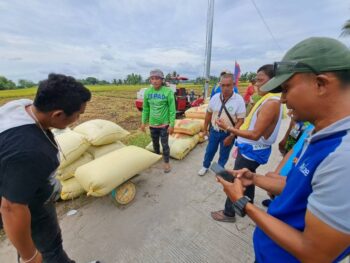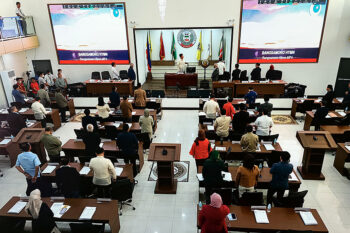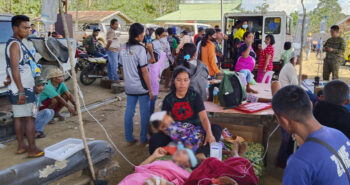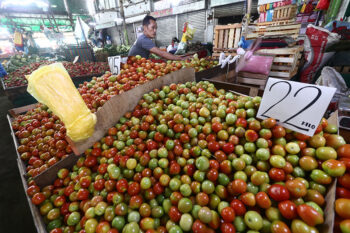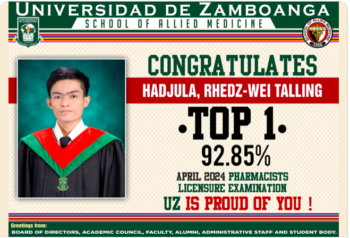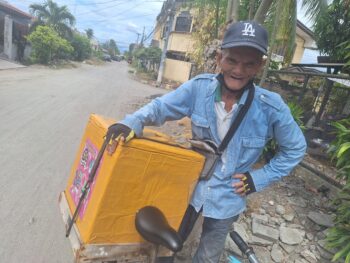CAGAYAN DE ORO CITY (MindaNews/21 July) — There’s an inadequacy in our value system which affects our conduct as the sovereign people of our Republic, a shortcoming that is not effectively addressed in the home, in school, or in church—namely, citizenship in a democracy.
This shortcoming is reflected, on one hand, by our neglectful attitude toward our immediate community and, on the other, by the failure of officialdom to capacitate our fellow citizens in their role as stakeholders and parties-in-interest as regards good governance.
Something needs to be done about this, a fresh approach to civic education perhaps? Will the K-12 educational reform do it? Does its social studies content cover citizenship?
Citizens need to be dutiful and responsible for their own governance, learning to perform the tasks of citizenship in the community. They also need to participate in the governing process, keeping their officials in line.
On the other hand, governments need to be proactive, working hand in hand with the people, enfranchising and empowering them.
*****
Then there’s socialization, taking off from John Donne’s maxim that no man is an island; that everyone thrives on relationships: family, community, nation, the world at large.
A citizen needs to understand key aspects of these relationships, that within the context of freedom and liberty, there are limits and in the course of interplay, there must be integrity, civility, harmony, solidarity.
It is important to appreciate life and the right to live: to enhance it, to preserve it, and never to destroy it except under the most threatening circumstance; that the pursuit of liberty and happiness is integral to life; that therefore no one may harm, diminish, or destroy it.
Then there’s community, the basic support group of a person and his family. As they say in Africa, it takes a village to raise a child. A sense of community and belonging is essential for the survival of family and, by extension, the nation. Values associated with bayanihan and pakikipagkapwa tao need to be reinforced.
*****
In the course community living, the Rule of Law needs special emphasis; that it is essential for the protection and preservation of everyone’s rights and safety; that democracy is the overarching framework for our social order.
It is important to internalize the principles and practices of a government of the people and by the people, and the centrality of elections. It should be clear to everyone why a corrupt vote creates an illegitimate government; that no one can expect responsible conduct from such a government, let alone justice; that therefore the act of voting must be approached as a sacred rite, the central rubric of a democratic system.
Failure to appreciate these concepts causes people to take elections lightly. It should be hammered into the consciousness of the masses that their vote bestows a special honor, status, and respectability to an aspirant; that it entitles him to special powers and privileges—including access to the repository of our common wealth, the government’s treasury, which has been the target of thievery and scam.
In other words, the nexus between a responsible vote and a responsible government needs to be made amply clear to everyone, its cause-and-effect relationship.
*****
The right of suffrage also needs emphasizing as a sacred keepsake that affects current and future society; that therefore it may not be taken matter-of-factly—certainly not as a mere transaction between candidate and voter or a give-and-take-bargaining process. For it is the embodiment of a social contract that requires very serious considerations of conscience, honor, and duty to God and country.
The challenge to our democracy is how to make a voter understand the implications of his sovereignty and the gravity of his authority over government and its functionaries.
Our voters need to be sensitized to the consequences of electing anyone for reasons other than competence, conviction, commitment, and dedication to public service. It places the sensitive burden of political and economic power in the hands of an individual. If said individual has a flawed conscience or character, his acts and decisions cause grave consequences for government and society.
Finally, voters must learn to be honest and fastidious about their choices, feeling a compulsion to guard against any dishonesty, thievery, graft, or corruption committed as a result of their electoral choices, and to make amends by being circumspect and discriminating in subsequent elections.
*****
While no one would consciously elect a candidate notorious for venality, it helps to acknowledge that we do make mistakes; but it does not alter the fact our vote provides them the opportunity to commit high crimes. We enthrone senators and congressmen in Congress. We elect the president who appoints the cabinet. We make corruption possible to be committed by the venal among them.
Because that is so, we must learn to insist on transparency and accountability in their performance. We must learn to raise questions when there is ground for doubt or suspicion. If they claim to champion our wellbeing or our rights, we must learn to ask them to explain, clarify, or substantiate the boast.
These are the least we can do while so many of our countrymen labor in poverty and privation, so that, in the words of Winston Churchill, “All the men in all the lands may live out their lives in freedom from fear and want.”
Never again should our nation suffer the shock, humiliation, dishonor, and shame of the pork barrel scam! And never again let venal officials get away with impunity! –30–
Manny is former UNESCO regional director for Asia-Pacific; secretary-general, Southeast Asia Publishers Association; director, development academy of Philippines; vice chair, Local Government Academy; member, Cory Govt’s Peace Panel; and PPI-UNICEF awardee, most outstanding columnist. Today he is President, Gising Barangay Movement Inc valdehuesa@gmail.com


